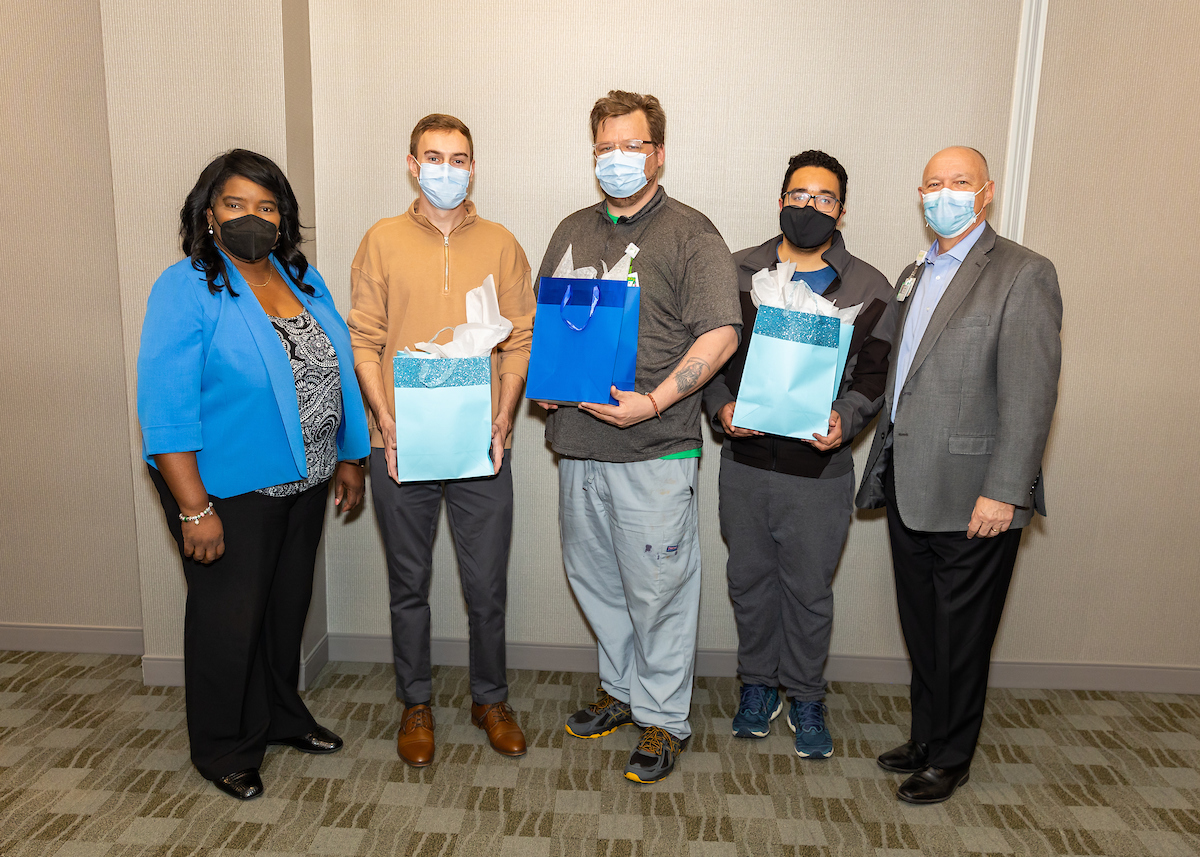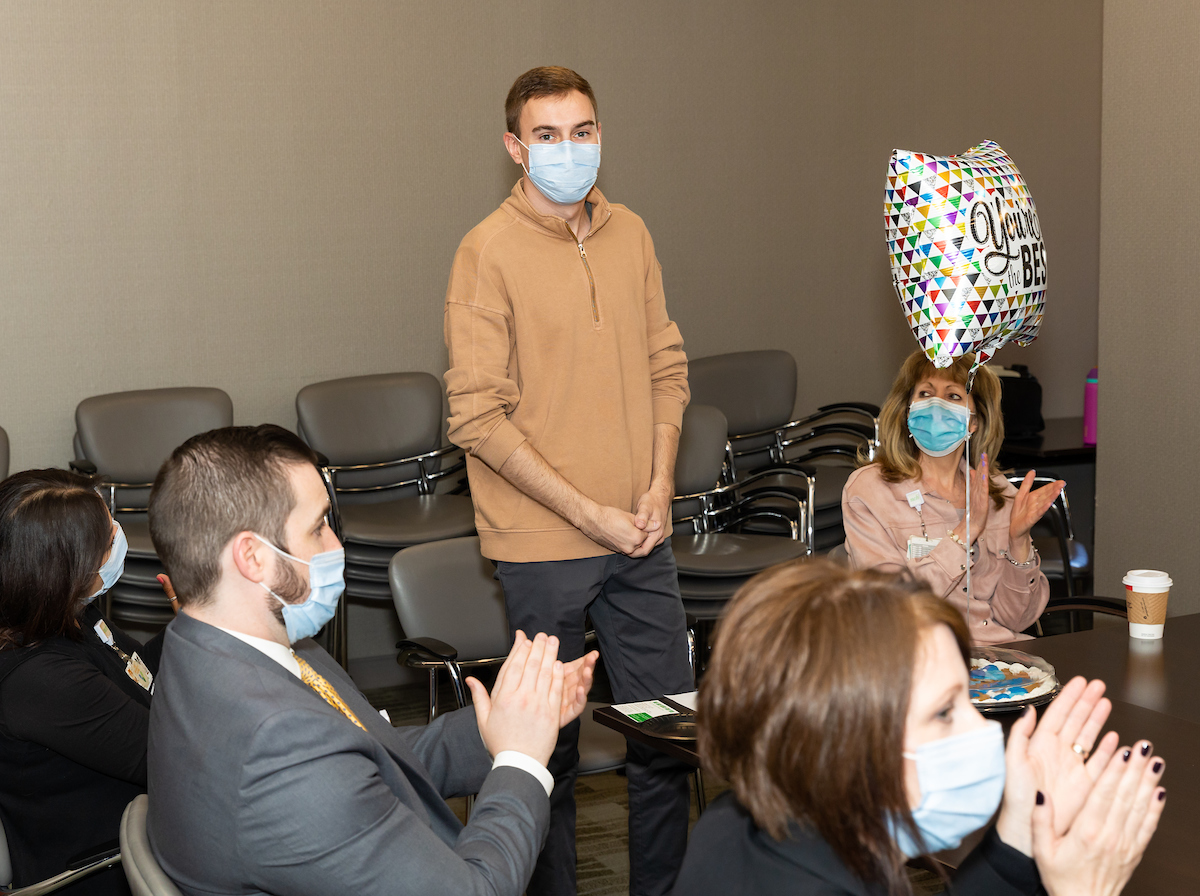
 Intense collaboration and commitment to community are hallmarks of organizations that
provide outstanding education and administer quality health care. So it’s not surprising
that when Northwest Community Healthcare sought to bolster its quantity of certified
nursing assistants (due to a nationwide nursing shortage), it found commonality with
Harper College.
Intense collaboration and commitment to community are hallmarks of organizations that
provide outstanding education and administer quality health care. So it’s not surprising
that when Northwest Community Healthcare sought to bolster its quantity of certified
nursing assistants (due to a nationwide nursing shortage), it found commonality with
Harper College.
The two organizations have partnered on the new NCH-Harper Advantage: CNA program, which includes an accelerated course schedule to train new certified nursing assistants – or, as NCH calls them, patient care technicians (PCTs). The Advantage program draws on Harper’s experience as a national leader in apprenticeships, partnering with regional industries and educating specialized, valuable talent. In this case, that much-needed talent comes from within NCH.
“We asked our environmental staff, food service, assistants, greeters: Is this where you want to be?” said Christina Pykett, director of professional practice and the magnet program at NCH. “If it is, great. If not, how can we get you to where you want to be? We’re willing to invest in you if you believe in yourself.”
Here’s how it works: The NCH Foundation provided funds for scholarships for incumbent workers to be trained at Harper to become certified CNAs, at no cost to each apprentice. Harper kept costs low to ensure the financial viability of the program while ensuring that apprenticeship coaches and tutors would assist apprentices with their studies. NCH did the same with in-house mentors to help program participants.
As a tangible example of how both sides were committed to creating a seamless experience for apprentices, NCH and Harper co-hosted a reception to honor the participants during the first week of classes. Harper College President Avis Proctor, NCH CEO and President Steve Scogna and other leaders showed their excitement for the program and support for its participants.
 Mike Ventrello, one of the four Advantage apprentices, said that while the program
has been rigorous, he’s appreciated the work that NCH and Harper put into navigating
schedules so he could balance classes, work and his personal life.
Mike Ventrello, one of the four Advantage apprentices, said that while the program
has been rigorous, he’s appreciated the work that NCH and Harper put into navigating
schedules so he could balance classes, work and his personal life.
For nearly a year and a half, Ventrello (pictured, right) has been an NCH patient care specialist, checking in patients, working on lab orders or doing other tasks. He has a bachelor’s degree in allied health sciences from Grand Valley State University in Michigan and was looking to move into more clinical work when he applied to the Advantage program, after learning about it via a work email.
“This is a good transition for me,” Ventrello said. “It’s dipping your foot in the water and going from there. It’s a step in the right direction.”
Ventrello and the other apprentices completed their five weeks of course work in June, followed by five weeks allotted for clinical rotations. Pykett said the plan is that apprentices would be ready to sit for certification by July 15 with the possibility of being active PCTs by mid-August. As part of the program requirements, participants agreed to commit to work for NCH for at least six months.
The combination of speed and quality in the Advantage program is something inherent in the work of the program’s steering committee of representatives from NCH and Harper. This committee began meeting in January 2022 and launched this pilot for the summer 2022 session.
“Harper is a star for our communities,” said Dr. Michelé Smith, vice president of workforce solutions at Harper and a member of the steering committee. “We want to help our community in terms of employers and employees. As a means of stopping the great resignation, apprenticeship programs are a game changer. They show that the employer is willing to invest in their own people.”
Smith also mentioned that, of the many individuals who have participated in one of Harper’s apprenticeship programs, more than 80% stay beyond their initial commitment. It’s a win-win situation.
“You already know the talents you’re getting,” Smith said. “You’re giving a chance to somebody who might otherwise not be able to do it.”
Pykett, also a member of the Advantage program’s steering committee, is excited about the program’s ability to train more PCTs for NCH.
“The NCH Foundation has scholarship funds ready,” she said. “We’re ready to work with another group.”